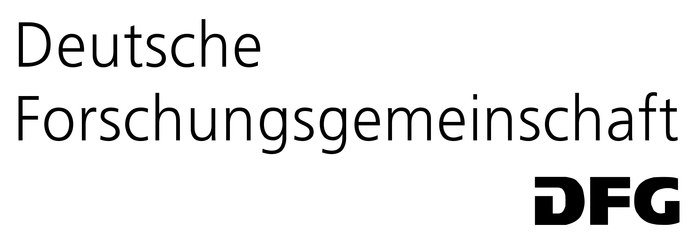German Research Foundation (DFG)

The DFG funds research in every scientific field. It supports individual projects, research cooperations, offers awards for outstanding research achievements and funds scientific infrastructure and actions for scientific contacts. The support is provided through financing of its own centres, agencies, personnel costs, equipment costs, travel costs, publication costs, and language courses.
Further Information
- DFG Funding Programmes at a Glance
- Funding Programmes for Young Researchers
- Current Calls for Tender in the DFG Funding Programmes
- Application Fact Sheet and Guidelines
- DFG Contacts by Subject Area Responsibility
Some references in particular
The DFG has published useful information for applicants on its website "Individual Grants Programmes - A How-To Guide". For young researchers, it may be possible to obtain funding for their place in research training groups or projects run by post-doctoral researchers. For obtaining funding for the applicant's own post, a declaration from the university will be required to the effect that for the duration of the grant it will take over the role of employer and that it guarantees the framework conditions for the execution of the project. The wording of the declaration is fixed.
Equipment where the purchase price including value added tax and other ancillary costs individually exceeds 10,000 euros shall be procured by the DFG and made available as a loaned item for the duration of the project.
In the case of a thematic relationship to a collaborative research centre (CRC) at the location, the applicant must submit a declaration from the head of the CRC regarding the possibility of accommodating it. The GEPRIS database may be searched for projects funded by the DFG.
The DFG pays universities an overhead of 20% for their projects. Since 2007 this overhead has been granted for collaborative research centres, research centres, and research training groups, and since 2008 for other new research projects funded by the DFG. The universities are free to decide how the overhead will be used.
The DFG has issued standards for their technical consultants from which the Assessment Criteria can be obtained.
Standing Open Procedure (SOP)
The DFG supports international cooperation in order to facilitate transnational research activities. Based on this strategy, DFG also maintains cooperation agreements with some countries that enable continuous proposal submission within so-called Standing Open Procedures (SOP). Joint proposals with research partners in these countries may therefore be submitted at any time without having to meet a specific submission deadline. General information on SOP can be found on DFG’s website or here Standing Open Proposal Submission Procedures.






